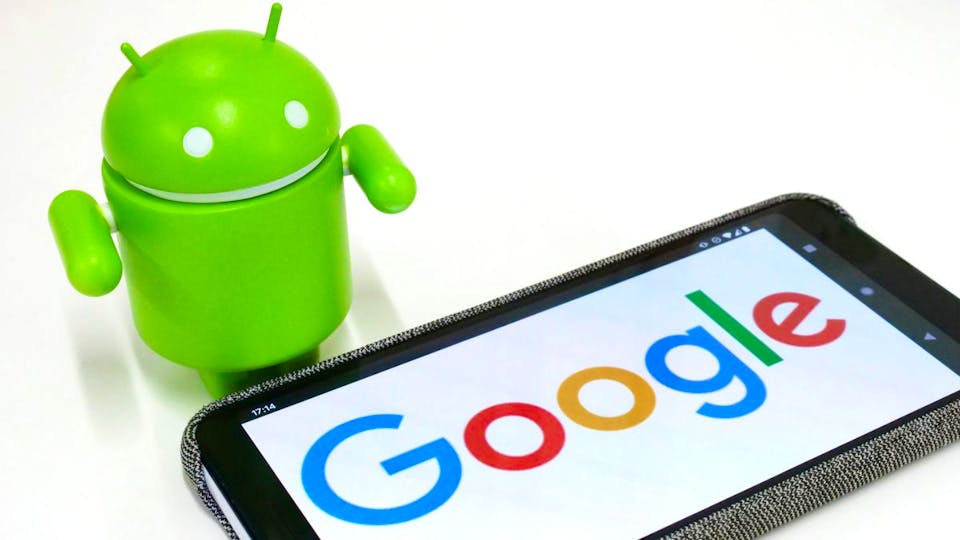Google has been ordered to make significant changes to how the Play Store operates following their lost legal battle to video game and software developer and publisher Epic Games.
US Judge James Donato issued a permanent injunction that will force Google to offer alternatives to its Google Play Store for downloading games and apps on Android phones after Epic Games, creator of the popular video game Fortnite, filed a lawsuit against the tech giant for their “monopolistic practices on its Google Play Store on Android”.
The jury trial was held in November and December 2023, with the decision to side with Epic Games made on 11th December 2023.
On Monday, a filing for the ruling was given that stated, starting in November, Google must offer alternatives to its Google Play Store for downloading apps on Android phones among other rulings, essentially ending their monopoly of the app store space on Android phones.
According to the filing, for three years from November, Google will not be able to:
- Pay companies to launch apps exclusively or first on Google Play
- Pay companies so they do not compete with Google Play
- Pay companies to preinstall Google Play on new devices
- Require app makers to use Google Play Billing, or prohibit app makers from telling their users about cheaper online goods on their website (Google Play takes between 15% and 30% of in-app purchases as a fee from large app makers)
- Google will also have to permit competing Android app stores to access Google Play’s catalogue of apps
- Google will have to carry third-party Android app stores on its Google Play app store.
In addition, the filling also mentioned that Google and Epic Games will also form a three-person committee that will review technical issues related to Google’s compliance.
What changes are coming?
Big news! The Epic Games Store and other app stores are coming to the Google Play Store in 2025 in the USA - without Google's scare screens and Google's 30% app tax - thanks to victory in Epic v Google.https://t.co/1g6uuw1CJB
— Tim Sweeney (@TimSweeneyEpic) October 7, 2024
The first thing we should note here is that for us users outside of the US, nothing will change. The ruling was for Google and Android devices in America only, so unless a similar ruling is filed and accepted here in Europe, Google will not be changing a thing.
The second thing to note is that for now, this ruling is only applicable for three years - from 1st November 2024 to 1st November 2027. As it stands right now, at the end of that term, Google will be free to change everything back to the way it was before.
The ruling and subsequent filing is a significant win for Epic Games and all other mobile game publishers for that matter.
No longer will Google have the final say on what games and apps can feature and be installed/bought. Every rival app store that will become available will offer their catalogue of games and apps, but most importantly, will also have full access to the complete Google Play Store software catalogue, giving users the choice of which app store they prefer to use.
Google will no longer be allowed to incentivise developers into launching first or exclusively on the Play Store, and will also not be allowed to do the same to stop developers from launching on rival app stores.
Alternative payment systems will now be available. Google will not be allowed to tie Google Play Store apps to its Google Play Billing system – a system that charges app makers a 30% fee on sales.
Google must allow Android app makers to run and promote alternative payment systems and let them set prices to whatever they want, regardless of the Google Play Biilling price.
Finally but maybe most importantly, despite what Google says, the security of Android devices should not be compromised from this filing.
While the decision has gone against Google, they will not intentionally begin making devices more susceptible to security breaches due to more third-party apps being available to install.
That is to say that they can still take “reasonable measures” which are described as “strictly necessary and narrowly tailored” to maintain the safety and security of Google Play as it opens up to rival stores.
Essentially, the measures that they take to ensure safety on the Play Store will be available to rival stores to employ, alongside the standard OS safety measures.
Google appealing the verdict
Why we’re appealing the Epic Games verdict ↓ https://t.co/1BeoZXMJVz
— News from Google (@NewsFromGoogle) October 7, 2024
It should be said that while all of this has been decided, Google has submitted an appeal of the verdict, adding in a statement that it will “ask the courts to pause implementing the remedies to maintain a consistent and safe experience for users and developers as the legal process moves forward.”
The full statement is an interesting read as it brings up some notable points that seemed to be overlooked by the trial court, including the fact that a similar case made by Epic Games against Apple ruled in Apple’s favour.
That is notable as what Epic’s main argument against Google was that they wanted allowance to offer their own app stores on Android devices - something which Google pointed out is already available.
Android is an open-source platform, meaning its source code is made available for use or modification as users or other developers see fit. Google’s statement said that “developers have always had many options in how to distribute their apps.”
This is as opposed to Apple and their iOS system, which is a closed platform, providing users with only the Apple App Store, which they operate and fully control, the same way Google did before with the Play Store.
There are multiple other points that Google states as to why they are appealing the decision, but for the most part, they all come back around to the fact that Android is in direct competition with Apple, and with a ruling that restricts them but was not implemented to their competitor, it is damaging to Android’s ability to compete with Apple’s iOS.
How long it will take for Google’s appeal and legal process to move forward is unknown, so as of now, the changes to Android and the Google Play Store will be coming to US devices as of 1st November.










